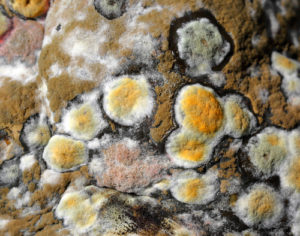What Does the CDC Say About Mold Exposure

Let Us Help Exterminate Your Mold Today!
The Centers for Disease Control and Prevention (CDC) is an organization under the Department of Health and Human Services that is charged with fighting disease and other threats to public health. Here’s some valuable information they provide about mold and its effects.
Where is Mold Found?
Any warm, humid area can provide a potential breeding ground for mold. Outdoor mold is most commonly found growing on decomposing organic materials such as felled trees, while indoor mold generally occurs in damp, humid areas such as bathrooms and basements.
How Does Mold Affect People?
Mold can trigger allergic symptoms such as wheezing, sinus congestion and red, itchy eyes. People with serious allergies or preexisting lung conditions can experience fever, shortness of breath and other strong reactions.
How Can You Limit Exposure to Mold?
Mold needs moisture to survive, so humidity levels should be kept low and water leaks or floods should be cleaned up immediately. If you find an infestation in your home, you should arrange for professional mold remediation regardless of what type it may be.
Should You Seek Medical Assistance?
If you’ve had extensive exposure to mold, don’t take chances with your health. Consult your primary care physician, who will determine whether or not your symptoms are severe enough for a referral to an allergist or other specialist.
State-of-the-Art Mold Treatment in NYC and Northern NJ
As the CDC recommends, you shouldn’t attempt mold remediation on your own. Our friendly and professionally trained technicians will remove mold and take measures to prevent its return. Visit our website to learn more about our efficient, effective and eco-friendly MoldExterm process.
